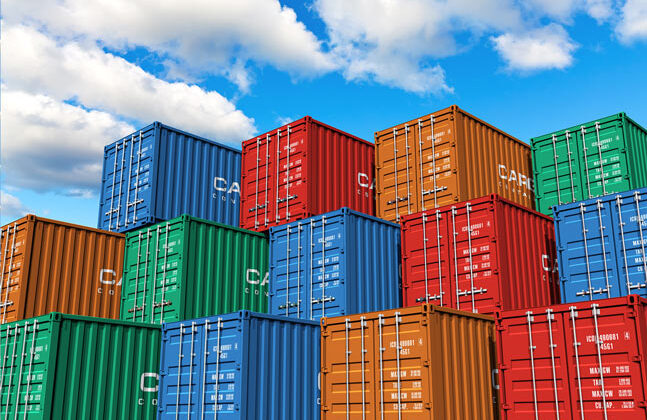
Govt moves to ease box shortages, glitches in faceless assessment of cargo and check soaring freight
NEW DELHI: An acute shortage of containers to facilitate exports and a sharp spike in freight rates are expected to ease up a bit after the government moved to resolve three key issues cited by exporters, importers and shipping lines for the hurdles that have roiled trade.
On December 17, the Central Board of Indirect Taxes and Customs (CBIC) issued instructions/guidelines to smoothen the process of faceless assessment of cargo, including carrying out re-assessment of goods/ bill of entry to avoid delays.
The export-import trade and the container lines had complained that the faceless assessment of cargo by Customs took as much as seven days which aggravated the shortage of containers for exports.
To speed-up the assessment process, the CBIC has raised the monetary limit of assessment of bills of entry only by the appraising officers to Rs 5 lakh from the existing Rs 1 lakh. This will take effect from Monday.
On December 17, the directorate general of shipping (DGS) lifted the 14-days mandatory quarantine period stipulated for ships arriving from ports of COVID-19 infected countries after maritime trade complained that this was delaying the berthing of vessels with a cascading effect on the container logistics chain.
The 14-day quarantine imposed on vessels had resulted in a wait of up to 4 days before berthing at ports. This not only delayed the discharge and the destuffing of import loads but also delayed the availability of containers for export shipments.
On a continuous basis, this delayed the whole cycle of several sailings put together and eventually resulted in a reduction in the number of sailings over a period of time, thereby causing a significant reduction in export shipments.
The removal of the 14-day restriction will lead to quicker turn-around of ships and help make extra trips in a month.
“Vessel slots are a weak area where you cannot do anything immediately,” said T S Ahluwalia, President Northern India Shippers Association.
The sea freight has soared by 100 percent on an average, Ahluwalia said.
On December 16, the Indian Railways decided to waive haulage charges for moving empty containers and empty flat wagons till December 31 in a move aimed at easing the container shortage and to check high logistics costs.
Some exporters say that the cost-free movement of empty boxes may not fetch substantial gains as lines prefer to send empties to China and such other places from where they can earn higher ocean freight.
“Repositioning empty containers and sending it back to the ports will take about 12-15 days. In this time, they can be easily moved to China from where they will be stuffed with cargo and moved to the US for which they will get more than $6,000 per container,” an exporter said.
Ahluwalia said that the cost savings arising from the haulage waiver given by the Railways should be passed on to the exporters. The container lines should not levy any charges from the exporters on this, he said.
Second, when empty containers are moved free of cost to inland container depots in the hinterland, priority for stuffing it should be given to readily available cargo and railed out to ports within a minimum time, instead of waiting for days for cargo of companies with which the line has a commitment.
Third, the stuffed containers should be hauled to the port by rail only so that the Railways can earn haulage charges one way, Ahluwalia, who is also the convenor of the Port and Logistics Committee of the Federation of Indian Export Organisations, said.
